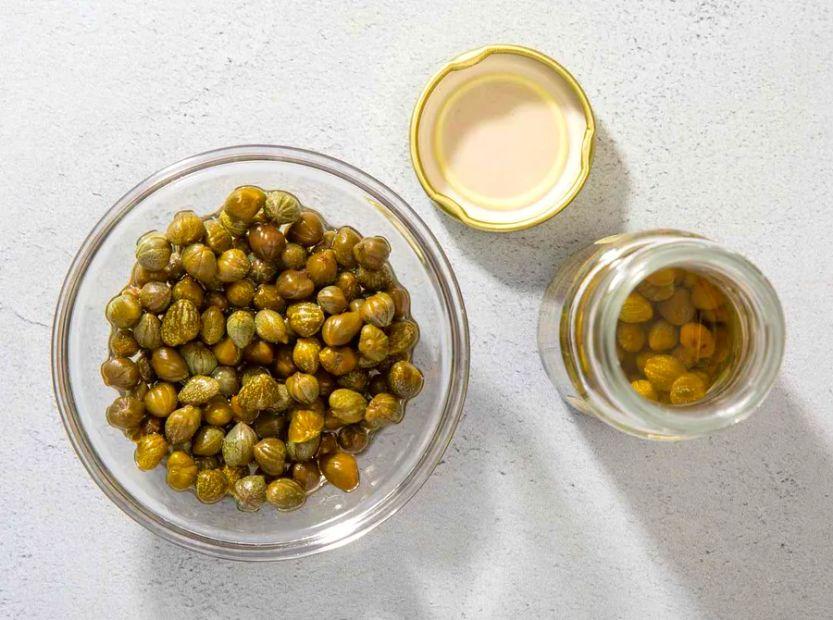Do Capers Expire?

Capers are those small, flavorful bursts that can elevate everything from piccata to egg salad. They seem to have a knack for dividing opinion — some people love them, while others can’t seem to understand why they dislike them. Despite their prominence in many dishes, capers are still somewhat of a mystery to many. So, the real question is: do they ever go bad?
What Are Capers?
Capers are the tiny, unripe flower buds of the Capparis spinosa plant, commonly known as the Flinders rose. This perennial shrub produces large, pale pinkish-white flowers with broad, rounded leaves when allowed to bloom. By the time these buds reach your kitchen, they’ve been preserved — either dried in salt or pickled in brine — which is why they take on that signature salty, tangy taste. Without this preservation, the buds themselves wouldn’t have such a distinctive flavor, but it’s this taste that makes them perfect as a seasoning or garnish in a variety of dishes.
Capers come in different sizes, with nonpareils being the smallest, around ¼-inch in diameter. These tiny capers are primarily harvested from the south of France and are known for their concentrated flavor. Their delicate texture adds a light, subtle crunch, and this unique quality is likely the reason why they are often more expensive than their larger counterparts.
Other Caper Varieties
There are several caper varieties, ranging from the smallest to the largest: surfines, capucines, capotes, fines, and grusas, with grusas being the rarest. As the size of the caper increases, so does its acidity, so it's important to consider this when choosing the right caper for your recipe.
Do Capers Expire?
Capers can spoil, but because they are preserved in vinegar, they have a long shelf life. Vinegar has been used for centuries as a preservative due to its acidic properties, which help prevent bacterial growth and extend the freshness of foods.
If stored in the fridge and fully submerged in their brine, capers can last for up to a year. When kept unopened in the pantry, they can stay good for even longer — sometimes up to two years.
Reminder: "Best By" Dates Are Just a Guide
How to Know If Capers Have Gone Bad
To determine if capers have spoiled, use the standard methods for checking most canned or jarred foods. If the capers are still sealed but the lid is no longer flush, is bulging, or if the safety seal is broken, it's a clear sign the capers are no longer good.
Capers should be various shades of green, so if you notice any brown or black ones, it's time to dispose of them. Mold is another red flag, especially if the capers are stored without liquid or exposed to air. Any dark spots in the brine or on the capers themselves signal spoilage.
Lastly, if you open the jar and are greeted by an unpleasant odor (other than the usual salty or vinegary smell), it's a sure sign that the capers are no longer safe to eat. In that case, just throw them out.
How to Store Capers
Like their larger, briny relatives, capers need to stay submerged in their salty brine to remain fresh. Unopened jars should be kept in a cool, dark spot, like a pantry. If your pantry tends to get hotter than 75°F, it’s better to store them in the fridge. Once opened, capers should always be refrigerated.
Capers can also be frozen in an airtight container, but be sure to check for freezer burn before using them. Ice crystals on the surface can affect the flavor and texture, making them taste bland and become mushy — definitely not a desirable outcome for these delicate buds.

1

2

3

4

5
Evaluation :
5/5